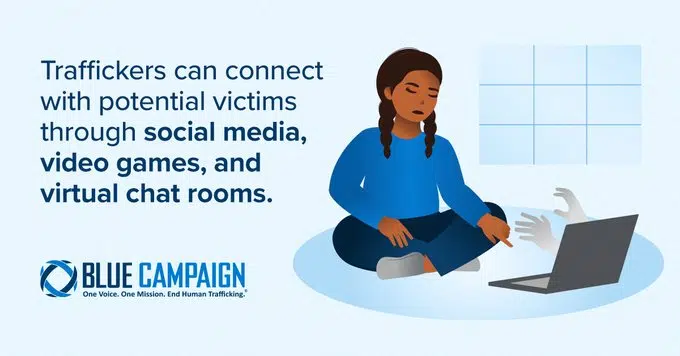Homeland Security Investigations’ Kansas City office continues its work to fight human trafficking, and it’s highlighting the connection between trafficking and sexual violence as Sexual Assault Awareness Month continues.
Acting Special Agent in Charge Taekuk Cho says human trafficking joins drug trafficking, weapons trafficking and financial crime as the top four organized crime categories worldwide. Sexual assault likely happens with the majority of trafficking cases as part of a control method Cho calls “force, fraud and coercion.”
Trafficking profiles are hard to set because of the range of perpetrators and victims, although victims may not be allowed to speak to others while alone, may be submissive and give apparently scripted or rehearsed answers while showing some signs of physical abuse. Many victims — but not all — are economically disadvantaged, and the age range runs the gamut from very young to elderly.
The end result can be a deeply traumatized person.
Cho says 28 million people worldwide, including over 200,000 in the United States, are believed to be subjected to human trafficking, although the estimated number may be much higher because trafficking is rarely reported. Human trafficking breaks down into two main categories — labor trafficking, which makes up around 77 percent of cases, and sex trafficking, which makes up the rest. Cho says Homeland Security Investigations uses a “victim-centered” approach as it investigates trafficking cases.
If you see potential human trafficking, contact local law enforcement and the Homeland Security Investigations tip line, 866-DHS-2423.
*Click here for human trafficking information from Homeland Security Investigations.
*Click here for human trafficking information from the US Department of State, including potential human trafficking indicators.
Full interview with Homeland Security Investigations Kansas City Acting Agent in Charge Taekuk Cho





















